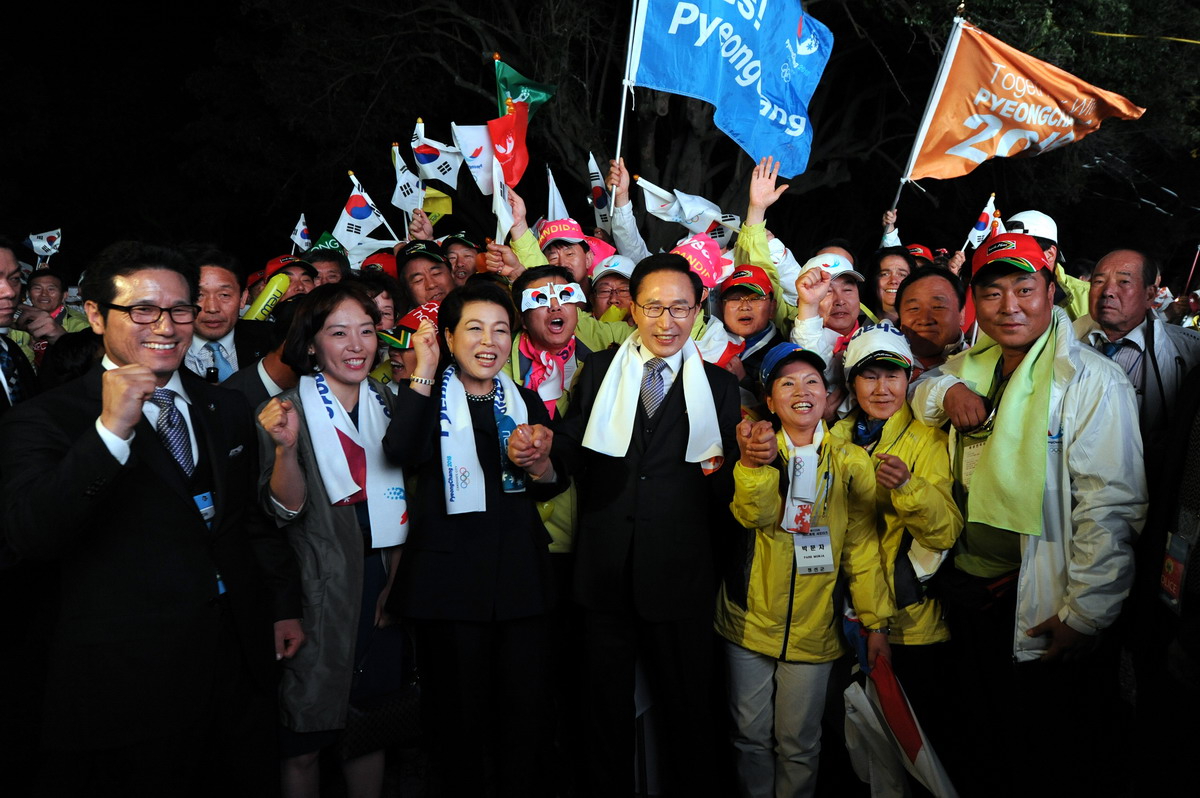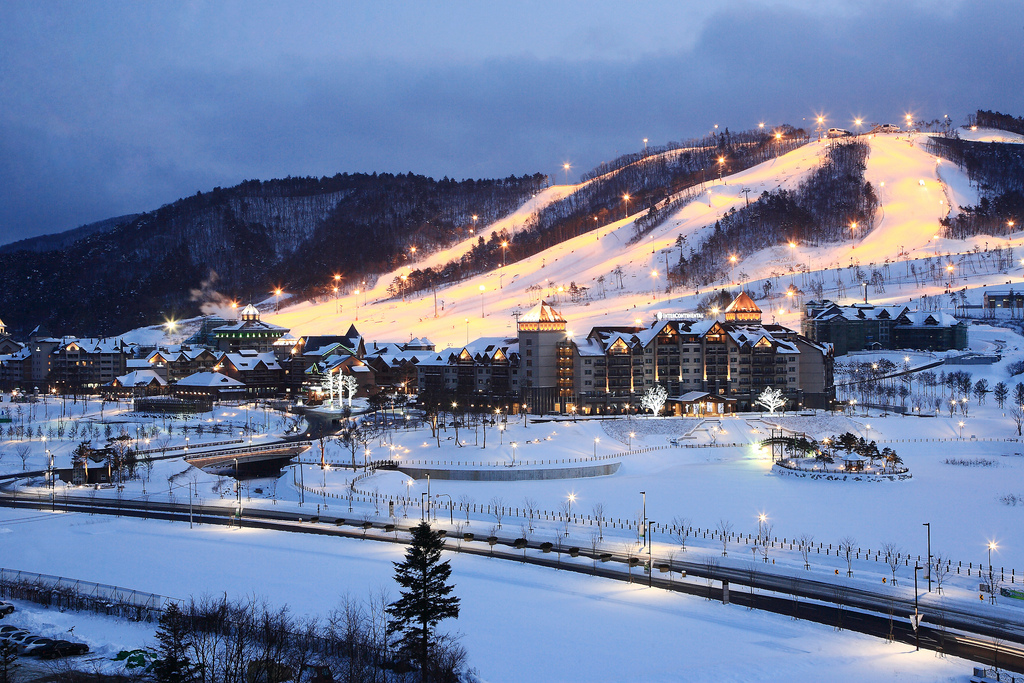
With Rio 2016 drawn to a close, PyeongChang 2018 is in the global spotlight to stage the next international mega-sports event. On February 9, 2018, the mountain resort region of Gangwon Province will turn into a world festival beyond sport. PyeongChang will bring drama, passion, joy, tears, and hope to sports fans around the world.
Tuesday, September 27 marked another significant point in the build up to the Olympic Winter Games, being exactly 500 days until the opening ceremony. While the big day is getting closer, the PyeongChang Organizing Committee for the Olympic and Paralympic Winter Games (POCOG) is getting ready to take its preparation to the next level by focusing on Games-time operations. As venue constructions are on time for completion, PyeongChang will rehearse for the actual event by hosting a series of test events from November to April next year.
PyeongChang has been preparing for the Games even before the city won the bid in 2011. As the host city was able to plan and invest early, losing the bid to secure the Games in 2003 and 2007 has turned out to be a blessing. By setting out concrete objectives for tourism, jobs, education, and sustainability at such an early stage, the Games will have a lasting impact in terms of housing, transport, and infrastructure.
PyeongChang 2018, 500 days to go: In less than 17 months until PyeongChang takes center stage, POCOG is making the transition from the planning phase to operational readiness. Six out of 12 venues will be newly built and six venues will be refurbished to meet international sporting standards. As of September, 88 percent of the entire construction program is complete and right on track for the test events starting in November.
Effective transport has long been recognized as essential factors for a successful mega-sports event. The high speed railway will be completed in June, 2017 and will reduce travel time between Seoul and PyeongChang from three hours to an hour and Incheon International Airport and PyeongChang from 3.5 hours to less than 2 hours. Similarly, the second Youngdong Expressway will be ready in June.
PyeongChang has achieved so much over the past years and is now entering the final stretch of preparations. IOC representatives, including IOC President Thomas Bach and Coordination Commission Chair Gunilla Lindberg, visited the host city a few days before the 500 days-to-go mark and commended the organizing committee by commenting, “We see great progress in PyeongChang,” and “keep the enthusiasm, keep the energy!”

When the town of PyeongChang first pitched its Olympic dream 13 years ago, it was a just vacation spot for winter sports enthusiasts. After losing the bid to Vancouver in 2003 and Sochi in 2007, PyeongChang bid committee organizers rigorously examined the previous failures while improving the plans and investing in the local infrastructure. As a result, PyeongChang was awarded to host the 2018 Winter Olympic Games.
Eighty percent of the competition venues are located within 30 minutes of the Olympic Village and 30 minutes from the Olympic Stadium. Since the plan was focused on the athletes and participants, it was a smart decision which helped PyeongChang receive positive assessments.
After the Olympic Games Seoul 1988 put Korea on the global map, PyeongChang 2018 will inspire the international community as well as East Asia by example. Asia has immeasurable potential to become the frontier of winter sports. Therefore, PyeongChang has been dedicated to promote winter sports and attract investments throughout Asia.
Since 2004, Gangwon Province has been organizing a sports training program called ‘The Dream Program’ to introduce winter sports to youth around the world who have limited or no access to winter sports. Over 1550 participants (105 with disabilities) from 100 nations took part in the winter sports academy so far. PyeongChang aims to further develop the Dream Program and encourage participation from developing nations. As a result, the program has been a stepping stone to put Asia in the forefront of winter sports.
A legacy beyond sports: Despite mounting criticism behind attracting large-scale events which usually result in fewer benefits than the cost, PyeongChang 2018 is bringing much more direct and indirect benefits to not only the local community but also neighboring countries.
PyeongChang 2018 is building human resources and nurturing talent for Korea to become a world leading winter sports nation. Through focused investment in sporting infrastructure and better support and information to the general public, the Olympic Winter Games will attract young sporting talent. As Asian countries are staging the next three Olympics and Paralympics – PyeongChang 2018, Tokyo 2020, Beijing 2022 – PyeongChang offers a vision for the future that can bring cooperation and prosperity to Asia. The Olympics is an opportunity to establish even closer links among the next host countries and build bridges through sports.
The PyeongChang 2018 Winter Games will promote culture, showcasing Korea’s traditional and modern culture to the world. The Games will seek to protect the environment, presenting the future generation with a foundation of sustainable development. The Games will advocate peace, strengthen friendships among countries and pursue the harmony of mankind. The Games will also serve the economy, seeking the most benefits with the lowest costs. The Games also aims to showcase Korea’s advanced IT service in 2018, including 5G telecommunications, robots, convenient Internet of Things (IoT), and 4K Ultra High Definition (UHD) broadcast. Korea’s high tech capabilities will also offer a ‘barrier-free’ Games environment. There will be no language barrier, no access barrier for the physically impaired, no age barrier, and no safety barrier in 2018.
With less than 500 days until the start of the Olympic Games, PyongChang is ready to take next step of preparations and create ‘new horizons’ for the upcoming Olympic Winter Games.
This story first appeared in the blog, The Sport Intern. The editor is Karl-Heinz Huba of Lorsch, Germany. He can be reached at ISMG@aol.com. The article is reprinted here with permission of Huba.